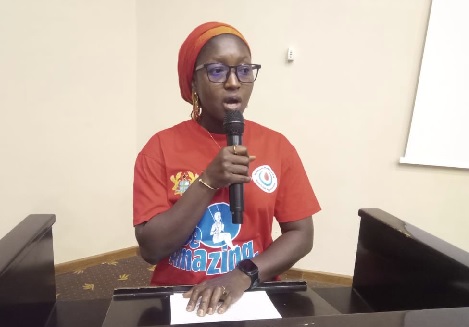WaterAid Ghana, a Water, Sanitation and Hygiene-focused non-governmental organisation (WASH) has called for renewed commitment towards women and girls’ access to WASH services.
The Advocacy, Campaigns and Inclusion Manager, WaterAid Ghana, Aliu Fauzia, said there was a need for renewed commitment towards a future where every woman or girl has equitable access to WASH services.
She noted that the organisation believed that addressing the challenges in WASH and Sexual and Reproductive Health and Rights (SRHR) was not just about infrastructure or policy but empowering communities.
She was speaking during a regional forum organised by WaterAid Ghana to commemorate this year’s International Women’s Day in Bolgatanga in the Upper East Region.
The forum was attended by stakeholders, including out-of-school girls, and was on the theme: “Accelerate Action: Advancing gender equality through inclusive WASH and SRHR services.
“We are here to dismantle the barriers that hinder progress and build a society where every individual, especially women and girls, can thrive to contribute to national development,” she said.
She urged stakeholders to continue to work together towards creating a future where every woman or girl would enjoy the dignity, safety and opportunities they deserve to better their lives.
Specific challenges
The Upper East Regional Minister, Donatus Akamugri Atanga, said women and girls often faced specific challenges and inequalities in the access and management of WASH and SRHR services, impacting their health, education and overall well-being.
![]()
A section of the participants in the forum
He indicated that most women face barriers in accessing WASH facilities in their communities, including discrimination in decision-making processes of citing the facilities, cultural norms and the lack of resources.
“Inadequate WASH facilities lead to health problems, particularly for women and girls who are more vulnerable to water-borne diseases and reproductive health issues,” he said and added that the lack of access to WASH facilities in schools could negatively impact girls’ education in the management of menstrual hygiene.
Promotion of gender equality
Mr Atanga stated that the promotion of gender equality in WASH and SRHR was crucial, as gender differences and needs affected socio-economic status, which often translates into most aspects of life.
Therefore, he called on stakeholders to focus more on involving women in decision-making and leadership in the related areas and include gender-responsive programming, leading to effective and sustainable solutions.
Advocacy
In a presentation, the Upper East Regional Adolescent Health Focal Person, Dora Kulariba, said women and girls were disproportionately affected by poor WASH and SRHR services, saying “women and girls are exposed to health risk and gender-based violence due to lack of toilet facilities”.
She advocated that the buying of sanitary pads should be made part of the groceries used in the house, as it is a necessity for the family.
“The availability of sanitary pads will prevent adolescent girls from falling prey to unscrupulous men,” she said.
Writer’s email: gilbert.agbey@graphic.com.gh

